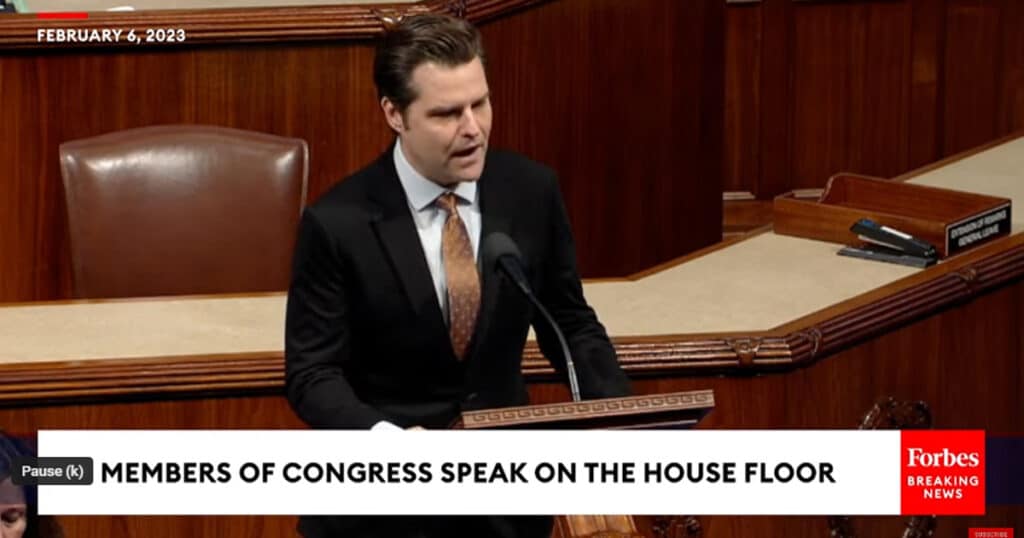
Narcissism Fuels Congressional Dysfunction
There was a time when even the segregationists had honor. In December 1963, Carl Albert needed one vote to end the fifth-longest congressional session in history. Unfortunately, the House Majority Leader needed that vote on an exceptionally controversial foreign aid bill.
At 2 a.m. on Christmas Eve, Albert phoned Congressman William Colmer. The conservative Mississippian was at home in Pascagoula, Mississippi, at the bedside of his hospitalized wife. Albert implored his fellow Democrat, “Bill, we need you, your party needs you, and President Johnson needs you. We all need you to give us a quorum.” Leaving his wife’s bedside, he flew back to Washington (through a blizzard) to vote against a bill. But Colmer’s presence gave the committee a quorum. The bill passed. The first session of the 88th Congress was done.
Ending the first session before Christmas was crucial. Given time to prepare, Albert and President Lyndon B. Johnson strategized to pass appropriations bills early in the second session. This gave Congress time to wait out the filibusters and pass the 1964 Civil Rights Act. Colmer knew this. The arch-segregationist was nevertheless an institutionalist. He understood that voters expected Congress to deliberate and pass (or defeat) legislation. Anarchy was no option. The segregationist left his sick wife on Christmas Eve to pass a bill he loathed, which paved the way for civil rights that he also opposed.
I often think of Bill Colmer when processing the political circus that we once called the People’s House. Neither party adheres to regular order, the committee process for budget appropriations. Members on both sides make generating social media hits, not legislation, their barometer of success. Republicans are currently going through speakers like a teenager eating Doritos. In early October, Matt Gaetz led a group of Republicans in deposing yet another speaker, Kevin McCarthy.
Gaetz and his confederates care nothing about conservative fiscal principles. Their vote created political anarchy. The chaos gives them publicity. That’s the sum total of their political calculus. Gaetz, like so many others on both sides of the aisle, cares little about party, ideology, or the institution. Adolescent antics that injure democracy but burnish their “brand” are their first and only priority.
Congress is dysfunctional. We all know that. But the roots of this dysfunction have to do with character, not ideology. Congress is a mirror of American society. Though Matt Gaetz, Andy Biggs, Ted Cruz, Nancy Mace, Rashida Tlaib, and Cori Bush (among others) span the ideological spectrum, they all exemplify an epidemic of narcissism that threatens institutions across society. Equipped with an “unreasonably high sense of their own importance,” these narcissists in Congress use their perch for a ceaseless pursuit of attention and self-promotion. In the process, they undermine public trust in institutions, which are at an all-time low according to polls.
In their widely hailed “The Narcissism Epidemic,” psychologists Jean Twenge and W. Keith Campbell see a society that has “overdosed” on self-esteem. Most serving in Congress fall short of the full-blown diagnostic disorder. But narcissism is a spectrum. Through their actions, we can clearly identify their grandiose sense of entitlement, self-importance, and willingness to exploit others (and institutions) for selfish gain.
Congress is not the sole institution riddled with narcissistic personalities. Talented sports stars (Kyrie Irving), entrepreneurs (Elon Musk), actors (Whoopi Goldberg), academics (Alan Dershowitz), and journalists (Michael Wolff & Naomi Wolf) eschew their considerable talents for a pell-mell pursuit of ever-greater fame and celebrity. Social science metrics indicate a clear cultural shift toward a narcissistic hyper-individualism. In 1963, only 12% of adolescents endorsed the precept “I am an important person.” By the 1990s, nearly 80% of adolescents responded affirmatively to the statement. Other studies reveal a marked increase in self-focused song lyrics and even a proliferation in the use of “I am the greatest” phrasing. Another study of pronoun usage in books demonstrates a decline in the third-person plural pronoun (we, us) and a 42% increase in the first-person pronoun (I, me).
This is not a recent phenomenon. In 1979, the historian and social critic Christopher Lasch noted an incipient “fascination with fame and celebrity,” giving rise to a “culture of narcissism.” His iconic book, “The Culture of Narcissism,” described a culture that supports and rewards narcissistic personalities. Narcissism, indeed, is incentivized. Partisan media (Fox, MSNBC, X/Twitter) and a hyper-partisan constituency reward those who strive for bombast and clicks over service and substance.
William Colmer had his faults. But those excesses were checked by a generational adherence to “social interdependence.” The so-called Greatest Generation’s cooperative social interdependence bequeathed healthy and robust institutions. The American founders called social interdependence “civic virtue.” To them, democracy rested on civic virtue, or the elite’s ability to sacrifice personal gain in favor of serving the public interest.
In 1971, Colmer encountered a new Democratic colleague, Bella Abzug. The antiwar iconoclast and feminist was the Mississippian’s total cultural and political opposite. Amid a fierce 1971 debate, the Mississippian, who by then chaired the powerful House Rules Committee, interceded on his very junior colleague’s behalf. They differed politically. But Colmer interrupted proceedings to ensure that Abzug had her turn in the floor debate.
Humans are fallible. Like Colmer, every one of us probably holds a wrongheaded, maybe immoral, political position. Civic virtue is the counterbalance to our inherent fallibility. The founders understood that character, not ideology, determines the fate of American democracy.
This article was originally published by RealClearPolitics and made available via RealClearWire.


